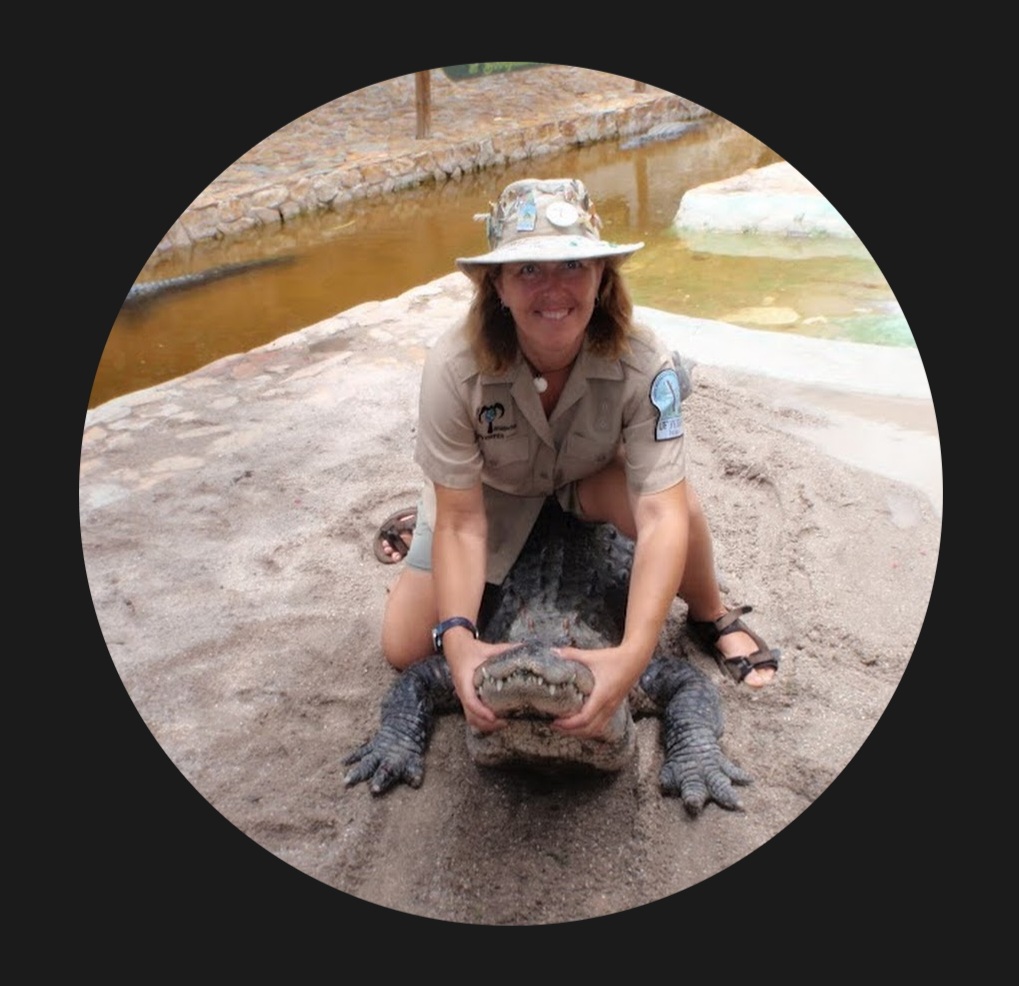We recently had the chance to connect with Kristen Hosd and have shared our conversation below.
Kristen, it’s always a pleasure to learn from you and your journey. Let’s start with a bit of a warmup: What do the first 90 minutes of your day look like?
Ahhhhh….morning. I have a ritual at home: get up, make coffee, feed the cats while coffee is brewing, then go sit in the hot tub and sip my coffee while watching the birds and butterflies. About 1/2 way through the cup, I go inside and change for the day (kinda like Mr. Rogers changing his shoes to get ready for the rest of the day) then grab fish food and my coffee and go sit by the canal. I feed the fish in the canal (they are always waiting at 8am sharp) and watch the otters frolick on my deck. Then I slowly start on emails until I am ready to go inside and get ready for programs or grant writing. A nice and relaxing way to ease into the day.
Can you briefly introduce yourself and share what makes you or your brand unique?
I am a wildlife and marine biologist who prefers to be outdoors in nature restoring habitat whenever possible. I have been educating people since I was 10. It started with taking my sister and friends slogging in ponds and catching turtles and snakes, to volunteering at a science center at 12 or 13yo, to on the job training once I graduated with BS in Ecology and Evolutionary Biology. Once I entered school for a Masters in Conservation Ecology and Wildlife Sciences, I continued teaching and training both as part of my Masters program and as a team lead on the Black-footed ferret recovery program with the AZ Game and Fish. It was there that I determined if I was to make a real difference for wildlife, more people need to be involved and committed to the resource, so I moved into experiential education with the goal of educating as many people as possible and training and empowering them to enact positive change on the planet.
Okay, so here’s a deep one: Who were you before the world told you who you had to be?
I was born this way. As a child under 10 years old, I used to go outside and explore the natural world around me. I would take notes and draw diagrams of what I experienced. I also used to read Ranger Rick magazine and write the National Wildlife Federation (NWF) to get free nature resources. Funny thing is, now I contract as an educator with NWF and still request free resources to hand out to people during our classes!
I lost my way when I was engaged and married in my last year of undergrad, focusing on a failing relationship and pets instead of my true passion and purpose. So, when that relationship ended, I sprung back into action, taking marine biology and ecology classes, going on research trips and rekindling the biologist and educator in me.
So now, I am again doing what I was born to do, educate and empower people to understand and restore the planet around them.
What did suffering teach you that success never could?
At one point in my life, I was really broke. I was always really worried about money, living paycheck to paycheck and was stressed and depressed. My family was not near and I felt alone in my suffering. I am not one to be a constant victim of my circumstances, so I worked hard to get myself out of my multi-year funk. I started with self-help books, books and classes about finances and took classes like yoga and chi-gong. I took classes about things that I loved to socialize and enjoy life while learning and finding a way out of the unhealthy situation I was in. I also remembered who I was as a child, a blissful state of me and I released positive intentions into the universe. I started focusing on how I wanted my life to be and things started to turn around.
On the money front, I never made a lot, so I had to decrease spending. That is where I really became a conservationist, truley understanding that not only does conservation help wildlife, but it can also save you money!
First, I looked around my house and realized that most of the stuff I had, was not purchased, it was found or given to me. Lesson 1: upcycling-the universe provides if you allow it to and take advantage of opportunities when they come. This of course is easier now because there are lots of resources for free stuff: craigslist, free cycle, bulk trash day and more. I am now puting this concept to the test and am building a tiny house with only upcycled materials and furnishings. I am almost done and it is so much fun.
Second, I wondered how I could lower my utilities. That is where restoration and conservation comes in. Lesson 2: Right Plant-Right Place. By planting the right trees for the natural hydrology and soils of my yard, in the right place to shade my house, I was able to drastically reduce my electric bill by up to 69%! By planting other native plants in my yard instead of grass, I was able to decrease irrigation and mowing costs (yes, I mowed back then, now I do not, now I am growing, not mowing).
Thidly, I wanted to lower bills more, so I implemented behavior changes that led to another significant savings. Lesson 3: Reduce consumption. By reducing the amount of water and electricity I used, I was able to save even more money and decrease water waste and the air pollution resultant from electrucity use. I only had to change my behaviors and start turning off lights and power strips when I was done using them, take shorter showers or turning off the water when I was brushing my teeth, or using a clothes line instead of a dryer, or opening the windows on cooler days and more. I still challenge myself to decrease consumption.
Lastly, I realized, as I was implementing these changes, I was happier and less stressed about money and I was getting back to my authentic me. I never was very materialistic, nor did I need to keep up with the Jonses, and I loved nature. Lesson 4: Being your authentic self leads to happiness. The upcycling and conservation not only saved me money, but it felt right. It freed up funds for more classes and travel and allowed more freedom to choose a new path to follow and I was restoring habitat in my own yard and increasing biodiversity, an unintentional consequence of planting to decrease utilities. The more I learned and the more authentic I became, the better my circumstances got. These lessons directly influence the lessons we teach at the non profit I run, Youth Environmental Alliance. I can teach from a point of view where I understand some of the suffering experienced by the underserved demographic we teach. I now teach lessons to empower children and adults to enact change for themselves and the environment. I have walked and continue to walk my talk thanks to the lessons I learned years ago.
I think our readers would appreciate hearing more about your values and what you think matters in life and career, etc. So our next question is along those lines. Where are smart people getting it totally wrong today?
I believe there are a few issues where smart people are getting it wrong:
Landscaping, media and keeping up with the Jonses.
1) Landscaping: for some reason, controlling our environment, turning bushes square and large expanses of sterile green yards (grass or artificial plastic turf with pesticides to kill everything) is preferred over working with nature and biodiversity. This concept evolved from our European roots where large green lawns meant wealth and our ancestral roots where certain insects or organisms could kill you in your sleep. Well, we are living in a much different world now where maintaining lawns costs $100 to $500 per month and it does not mean you are wealthy, it just makes you poorer. Plus, everyone seems to have lawns these days, they are nothing special. As for killer critters, we are much safer from perceived perils of pests.
Irrigation alone is responsible for 42% of freshwater withdrawls in the US, which is over 300 billion gallons per day. And no, we do not have plenty of water. Even in Florida, we are battling other states for access to fresh water. Wells are drying up and inundated with saltwater and sinkholes happen because of groundwater withdrawals.
As far as the perceived perils of pests go, we are much safer from wild killer critters than we were living on the plains of Africa or as settlers in the New World. We have sealed houses made of brick, we have medicine to cure whatever ails us and when educated about wildlife, we can understand different critters and their motivations more. We can actually learn to live with insects and wildlife in harmony when done right. Thus, biodiversity is a state of mind and it is really needed. Biodiversity leads to a healthier and fuller food web, one that we depend on. Biodiversity is dropping, with a 73% decline in global wildlife populations. This decline starts in your own yard, at the base of the food chain-wildlife friendly plants and insects. Biodiversity leads to cleaner air and water-lawns waste water, and utilize pesticides and fertilizers which pollute air (during their production) and water (as they runoff) thus decreasing biodiversity locally and globally because we are all connected, so we are all affected. It seems many people have become intolerant of biodiversity, poisoning every insect whether they are really bugging them or not. Tolerance is a state of mind and intolerance is taught. It is important that people educate themselves and their children to experience biodiverse yards for the ecosystem services they provide directly to you and their inherent beauty instead of something untamed. This is a state of mind that can be overcome through education and a paradigm shift. If you are interested in learning more, sign up for UF’s FL Master Naturalist class for adults. You can learn more at www.youthenvironmentalalliance.com/events.
2) Media. Smart people rely too much on media for information. It has been shown time and time again that media is biased and often there for entertainment or to land ratings. Smart people know this, but it is easier to access than actual reputable sources of informatiin like peer reviewed journal articles, un-biased reporting, industry certification classes and adult learning classes based in science and research. If you consider yourself a smart person, do yourself a favor and decrease media time and increase real world experiences and getting your information from reputable sources like ones listed above. Want to do a web search, go to websites ending in “.edu” or “.gov” (although now the US and FL governments are biasing what data is bring reported). Take a class from or travel the world with from Youth Environmental Alliance. Learn more at www.youthenvironmentalalliance.com/classes and /events
3) Keeping up with the Jonses. It feels like folks want to just go along with social norm, from landscaped yards to having fancy cars and lots of stuff, following the fad of the day or focusing on short-term gain instead of seeing a bigger picture. Many smart people have forgotten about the ripple effect and that we really all are connected on multiple levels so we are all affected (that should have been pretty obvious during the pandemic). The actions of one person does make a difference. I am proof, I am 1 person, but last year, the team I helped build created over 41,000 environmental stewards!
You are 1 person, lead by example, be as smart as you can be, keep learning. Make conservation (as described previously in this article), experiences, biodiversity and critical thinking the new norm. Be authentically you. Make science and learning cool and a priority. Plant gardens instead of grass. Again, lead by example and teach others to follow.
Okay, we’ve made it essentially to the end. One last question before you go. If you laid down your name, role, and possessions—what would remain?
A legacy of restored habitat and increased biodiversity, a legion of newly trained and passionate educators and environmental leaders and over 250,000 environmental stewards who at least have a jump start at utilizing critical thinking skills to create a sustainable life and environment.
Contact Info:
- Website: https://Www.youthenvironmentalalliance.com
- Instagram: https://www.instagram.com/youth_environmental_alliance?igsh=cmpheHlsaXlzY2to
- Linkedin: https://www.linkedin.com/company/youth-environmental-alliance
- Facebook: https://www.facebook.com/share/1DBf5n8Po6/
- Youtube: https://m.youtube.com/channel/UCxiJkaNb4-IY5RSbPDmjS3A
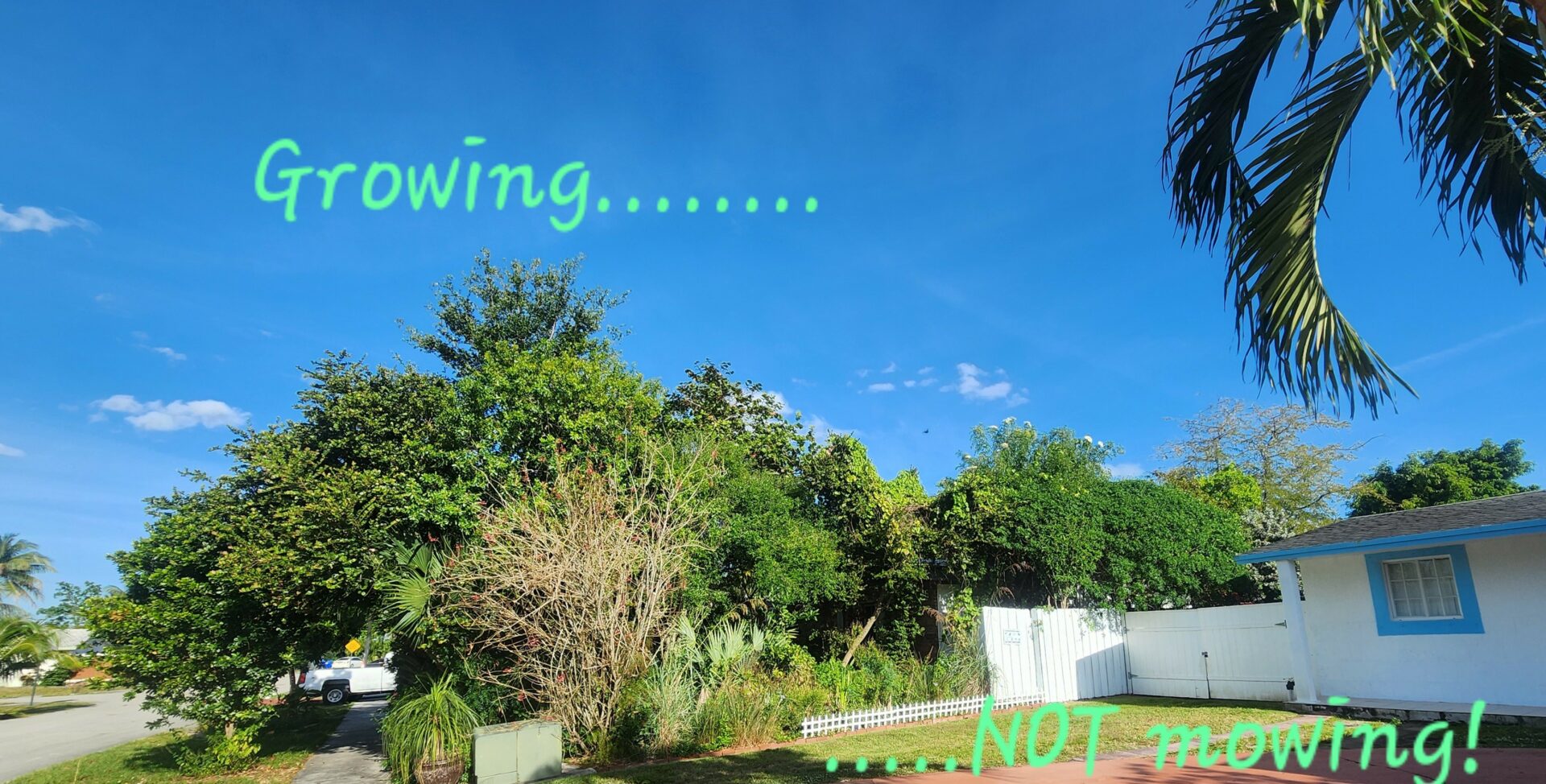
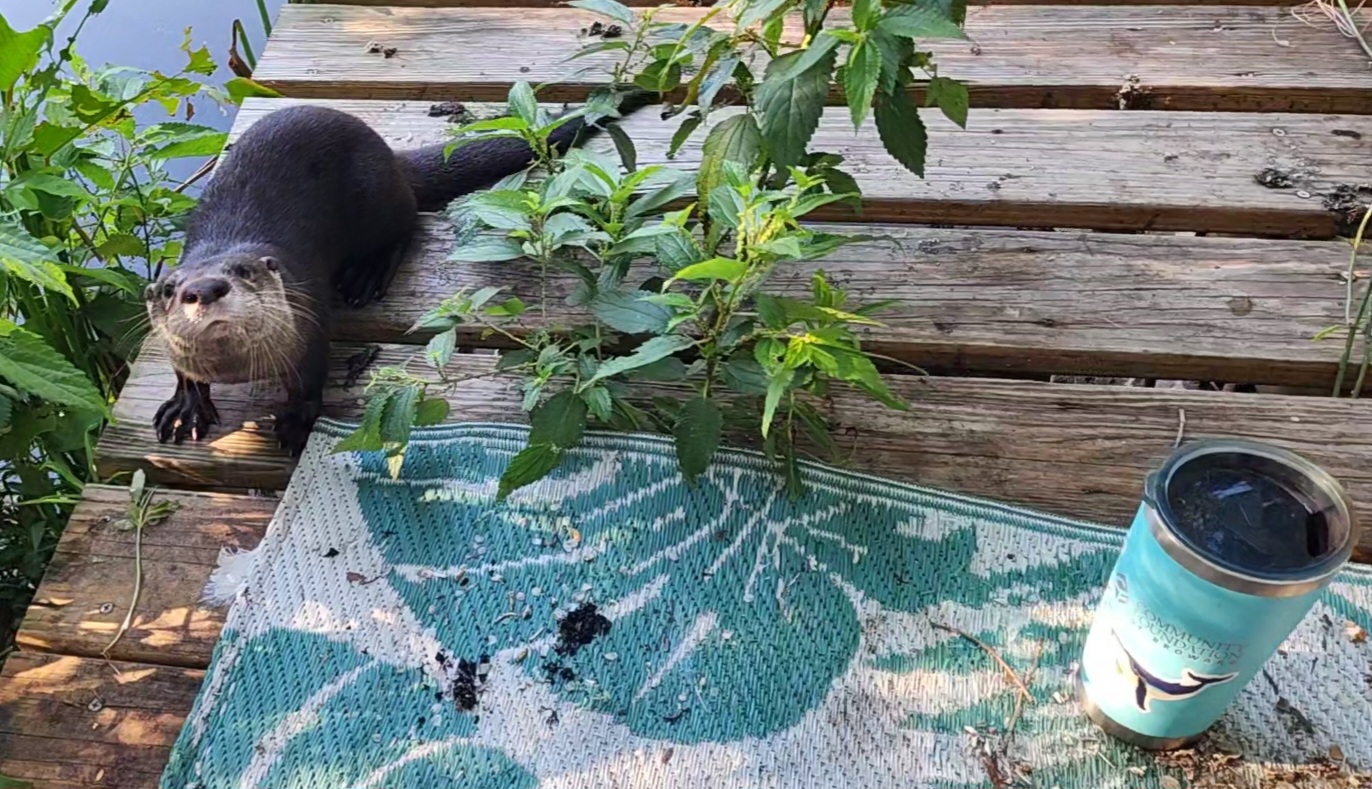
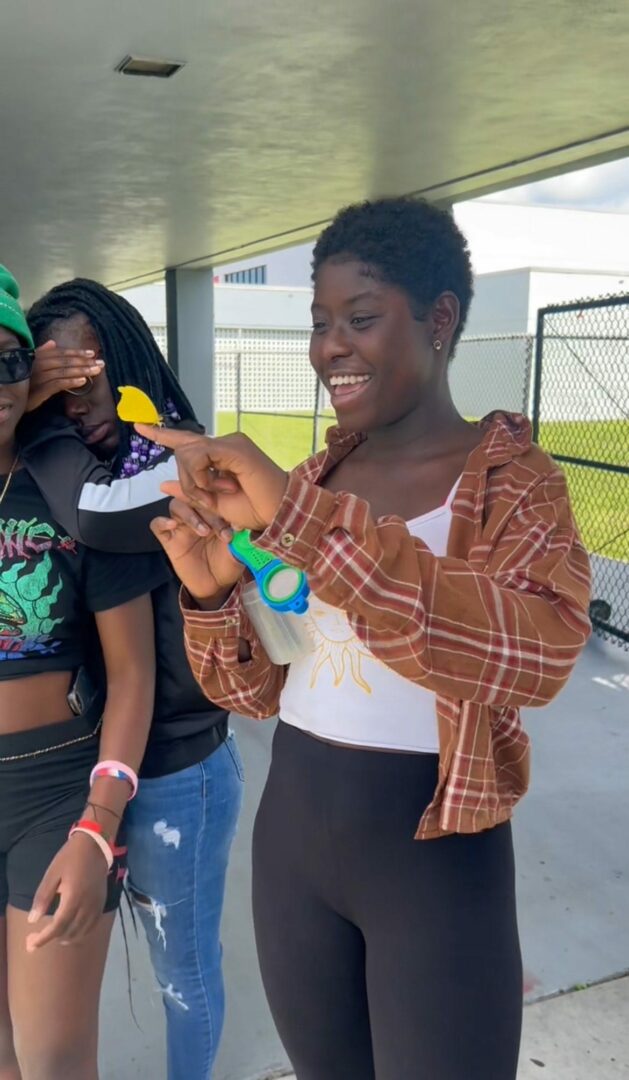
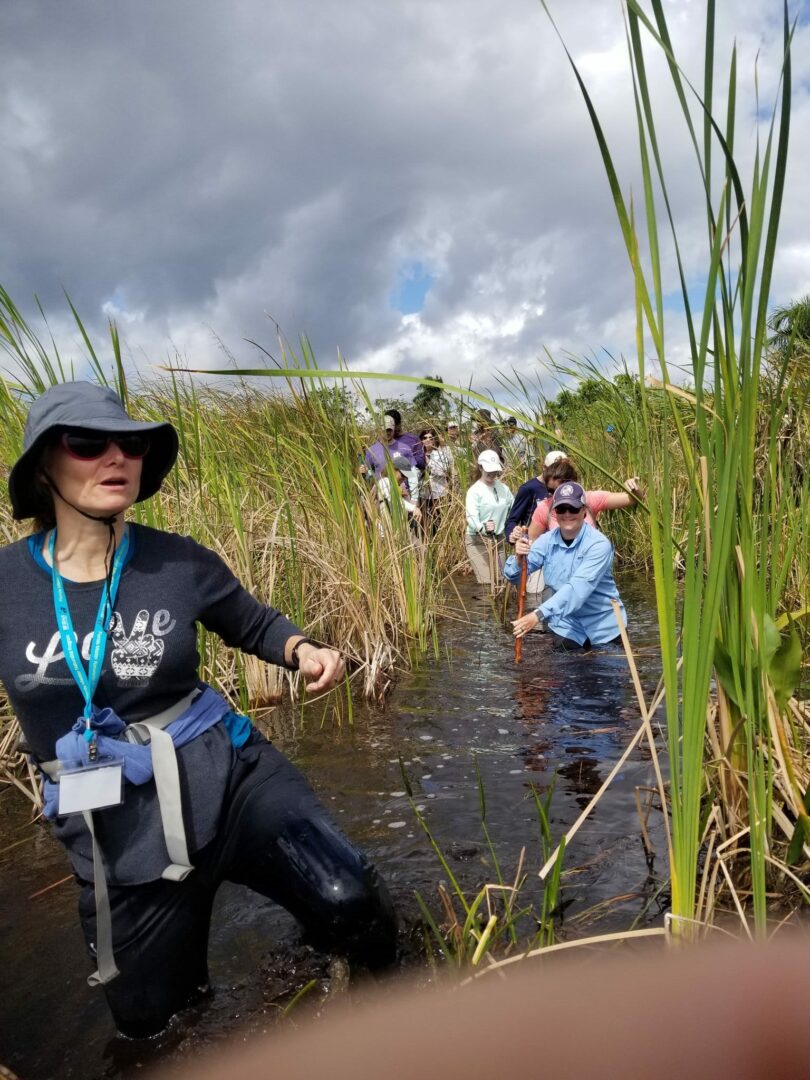
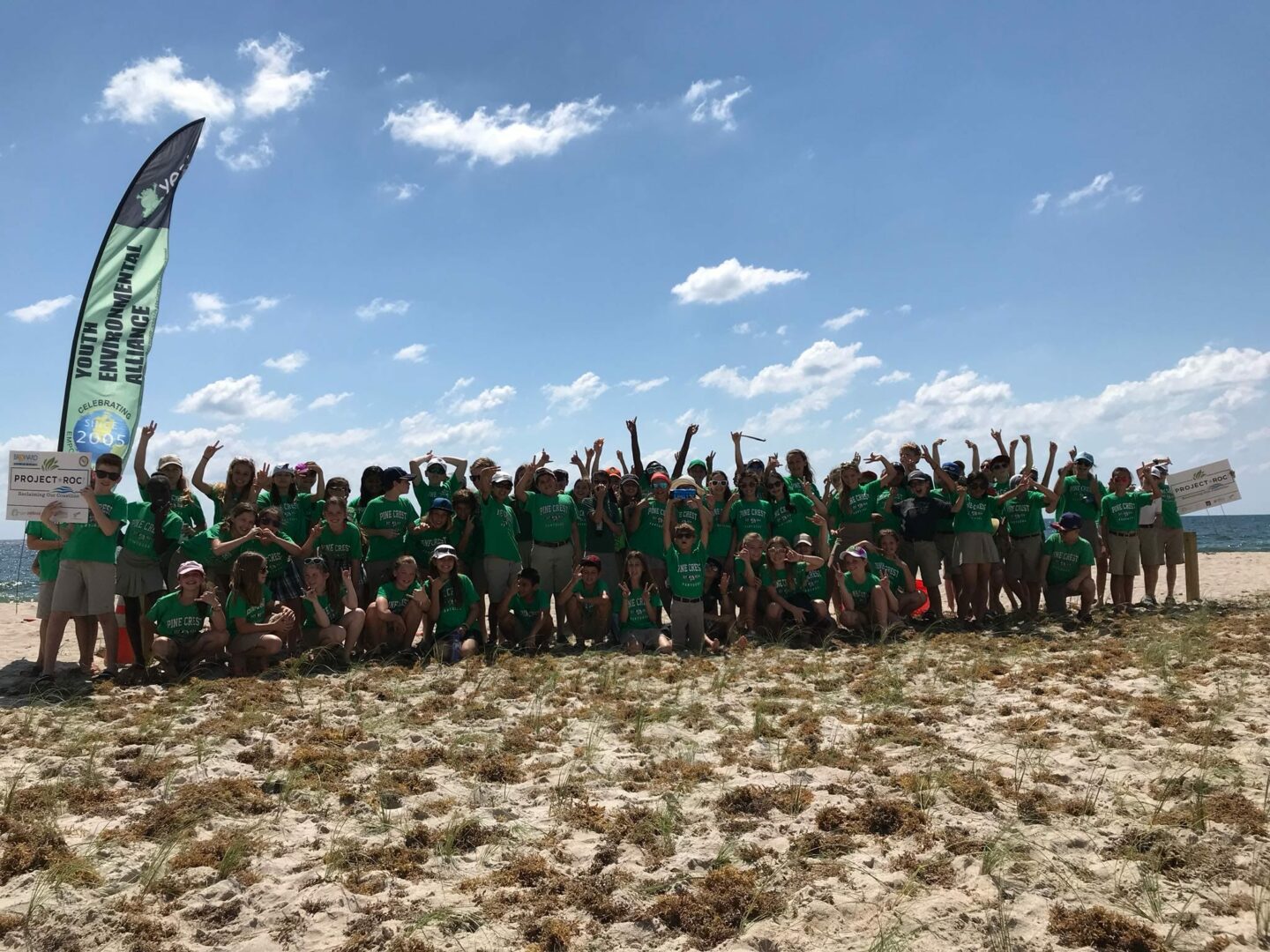
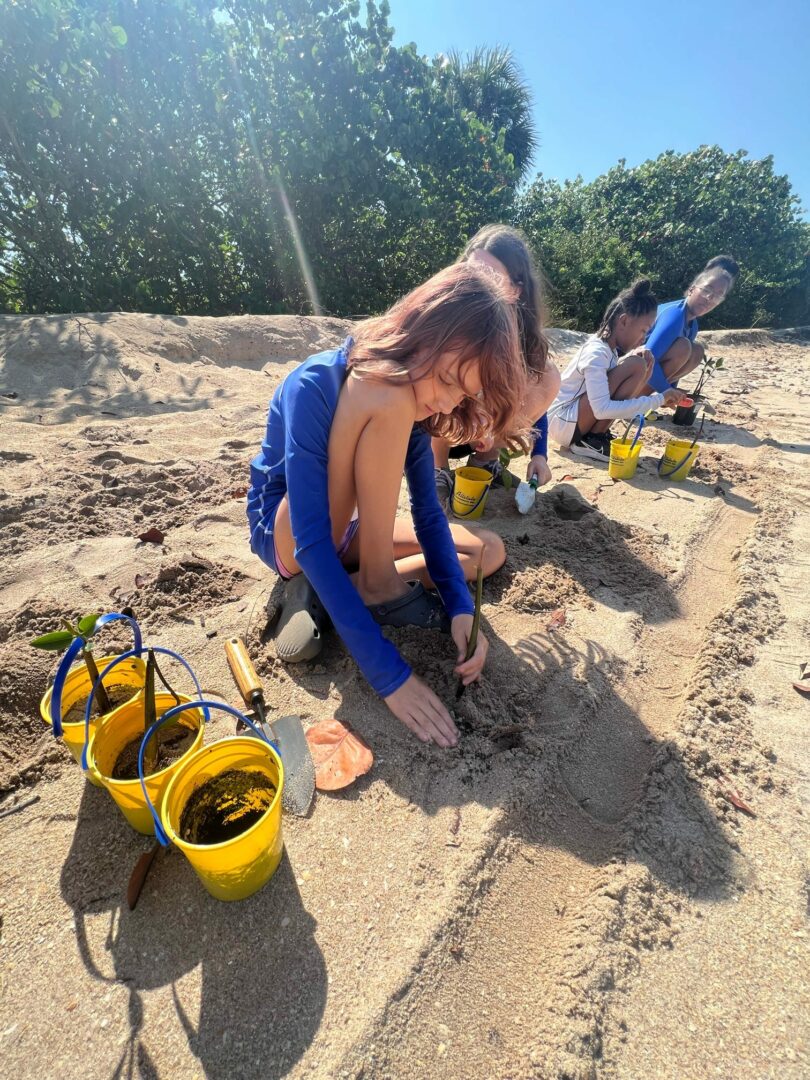
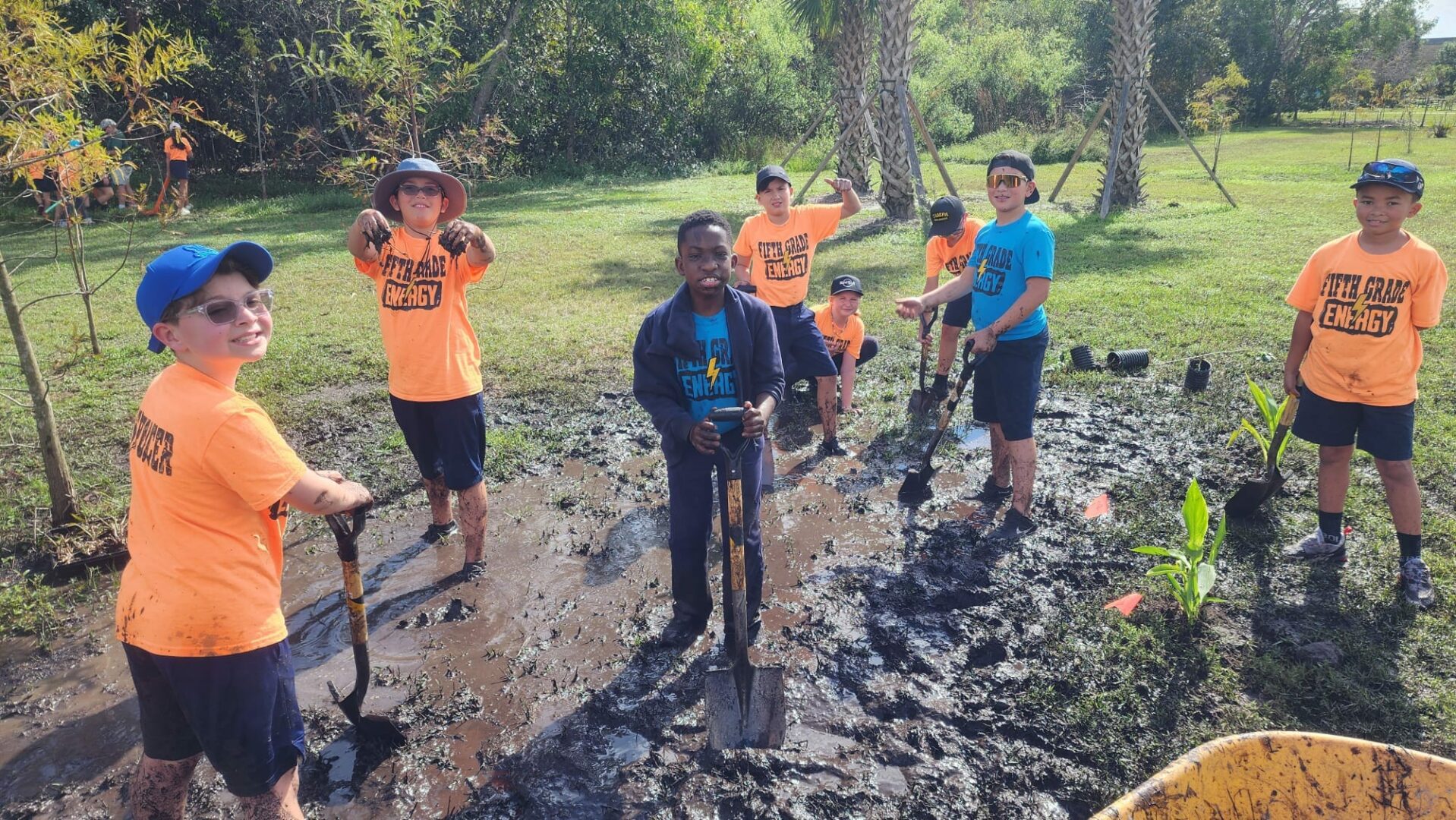
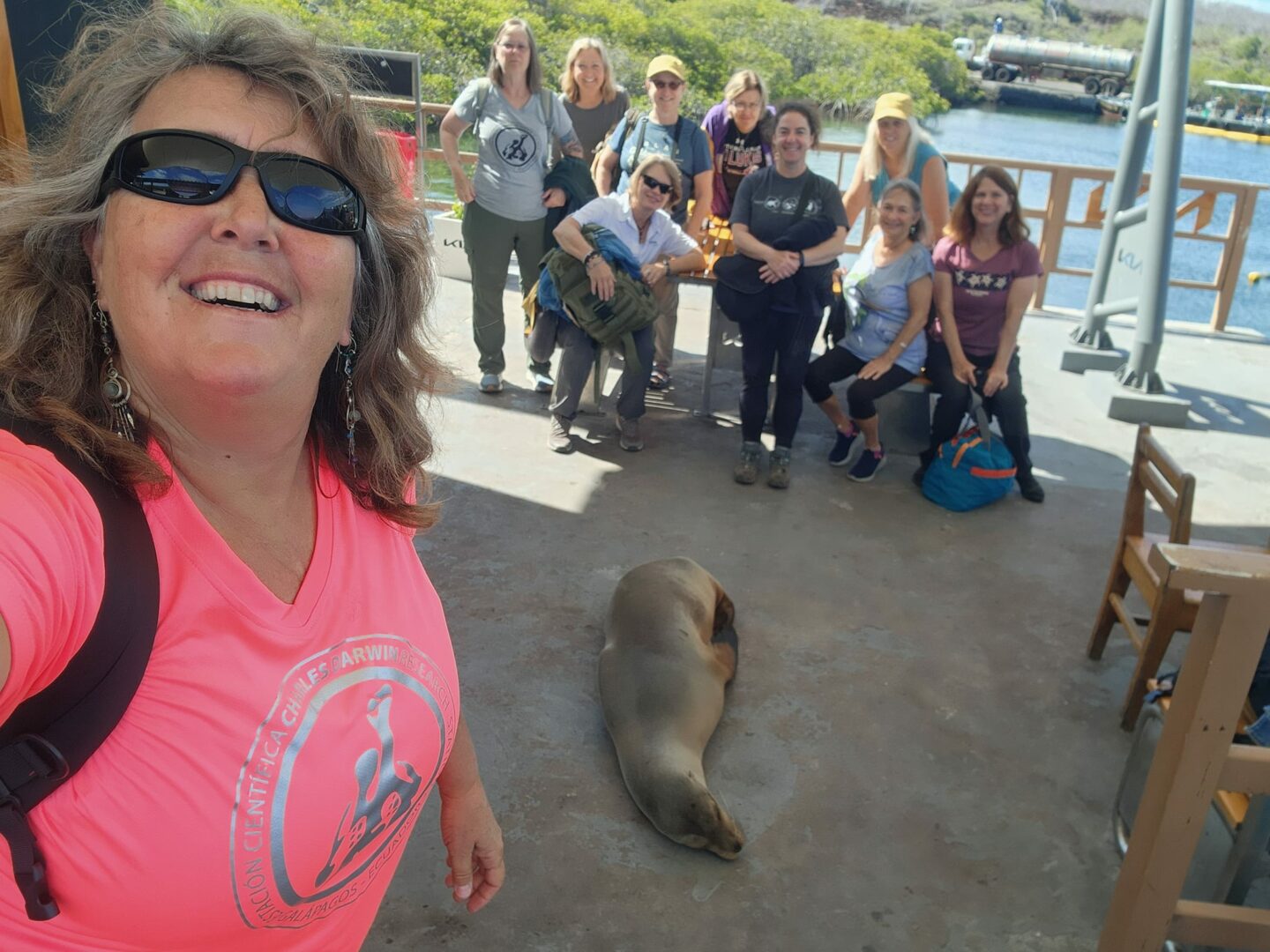
Image Credits
Image credits: Kristen Hoss and the Youth Environmental Alliance Team
so if you or someone you know deserves recognition please let us know here.

